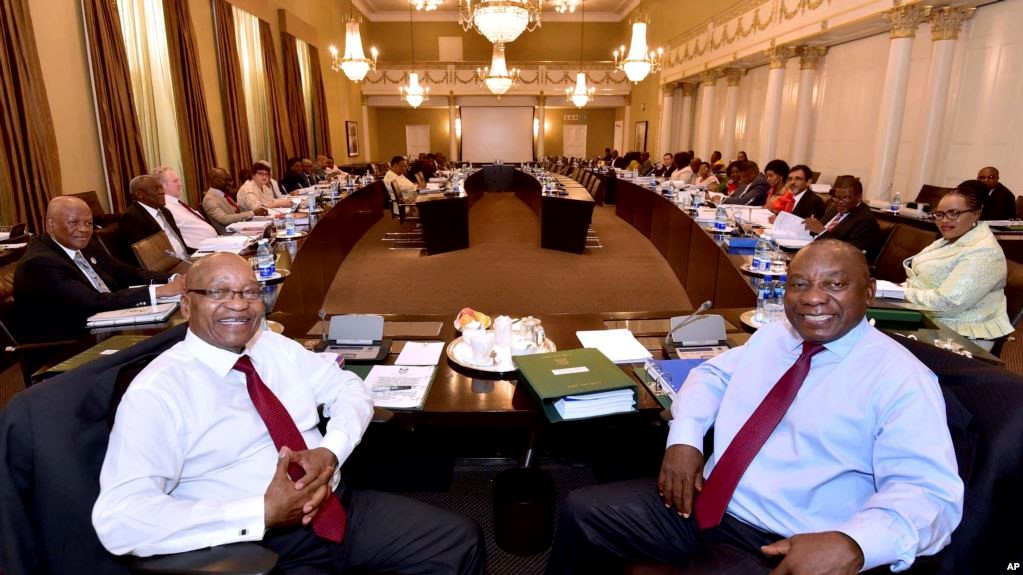
Ethiopia criticizes Trump over comment on disputed dam
Ethiopia criticizes Trump over comment on disputed dam
Ethiopia has interpreted Friday comment by the United States President, Donald Trump, on the disputed Ethiopian as belligerent threat and affront.
The US president said Egypt will ‘blow up’ the Ethiopian dam if an agreement is not reached over operation and water flow.
In a tweet, former Ethiopian Prime Minister Hailemariam Dessalegn said Trump’s comments were reckless and irresponsible.
Prime Minister Abiy Ahmed did not specifically reference Trump in a statement released by his office on Saturday, but said “occasional statements of belligerent threats to have Ethiopia succumb to unfair terms still abound”.
“These threats and affronts to Ethiopian sovereignty are misguided, unproductive, and clear violations of international law,” Abiy said. “Ethiopia will not cave in to aggressions of any kind, nor do we give recognition to a right that is based on colonial treaties.”
Foreign Minister Gedu Andargachew summoned US ambassador Michael Raynor to clarify Trump’s comments.
On Friday, Trump called for a resolution to the standoff over the Grand Ethiopian Renaissance Dam during a phone call with Sudanese Prime Minister Abdalla Hamdok.
He warned: “They [Egypt] will end up blowing up the dam.”
“And I said it and I say it loud and clear … they’ll blow up that dam. And they have to do something,” he said during the call, which came as both leaders announced that Sudan would begin to normalise relations with Israel.
Trump had told the State Department earlier this year to suspend millions of dollars in aid to Ethiopia because of the dam dispute, angering Ethiopians who had accused Washington of being biased in its earlier efforts to broker a deal on the project with Ethiopia, Egypt and Sudan. Ethiopia walked away from those talks.
“They will never see that money unless they adhere to that agreement,” Trump said on Friday.
Egypt, for its part, has repeatedly said it wants to settle the dispute through diplomacy, but has also said it would use “all available means” to defend the interests of its people.
Abiy’s office has said there has been significant progress made in resolving the dispute since the African Union took over negotiations, the most recent round of which broke down in August.
“The man doesn’t have a clue on what he is talking about,” he wrote.
Ethiopia, Sudan and Egypt have been deadlocked in the dispute over the filling and operation of the dam for years.
The Grand Ethiopian Renaissance Dam has been a subject of an ongoing dispute between Egypt, Ethiopia, and Adis Ababa hailed the completion of the first phase of the dam in August as a national triumph that will help to lift citizens out of poverty by making it a major power exporter.
Cairo has said it is dependent on the Nile for more than 90 percent of its scarce freshwater supplies, and fears decreases in water flow caused by the dam could have a devastating effect on its economy.
Khartoum, meanwhile, stands to benefit from the project through access to cheap electricity and reduced flooding, but it has also raised fears over the dam’s operation, which could endanger its smaller dams, depending on the amount of water discharged downstream daily.
Cairo and Khartoum are seeking a legally binding deal that would guarantee the appropriate flows of water.
William Davison, a senior analyst at the International Crisis Group, told Al Jazeera that Trump’s comment were “pretty outrageous” and suggest that he is “not really in touch with the reality on the ground”.
“The idea of conflict to solve this dispute over the Nile has always been very far-fetched and ultimately hugely counter-productive – it could lead to some sort of regional conflagration,” he said.
Timothy Kaldas, a non-resident fellow at the Tahrir Institute for Middle East Policy, told Al Jazeera that – despite Trump’s comments – Egypt is unlikely to take military action over the dispute.
“It’s unclear exactly what [Trump’s] motivation is. I think part of it actually is vanity – I think he is pretty annoyed that the Ethiopians withdrew from the talks unilaterally, and refused to show up to Washington for what was meant to be the last round of talks,” Kaldas said.
“I don’t think that there is a serious risk that Egypt is going to proceed with any sort of military action on the dam. They’ve made it pretty clear that that’s not what their priority is.”




Recent Comments